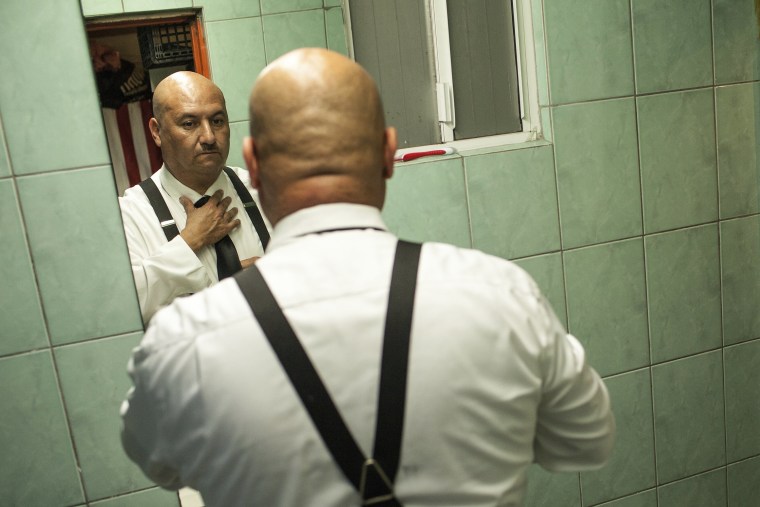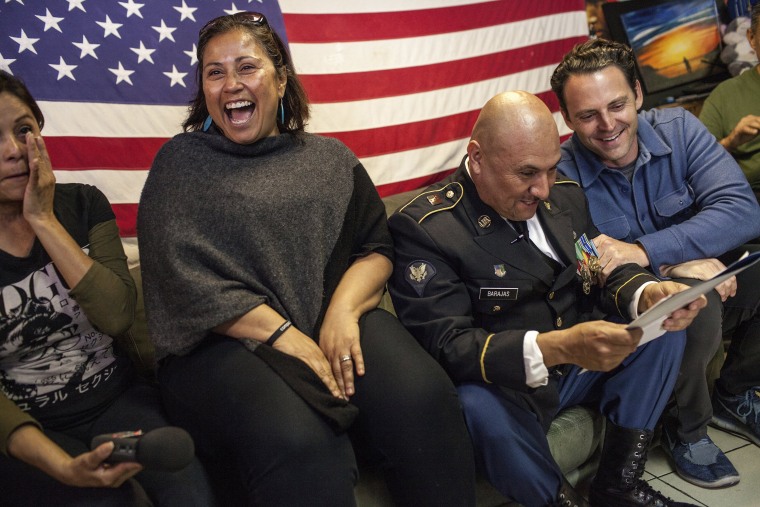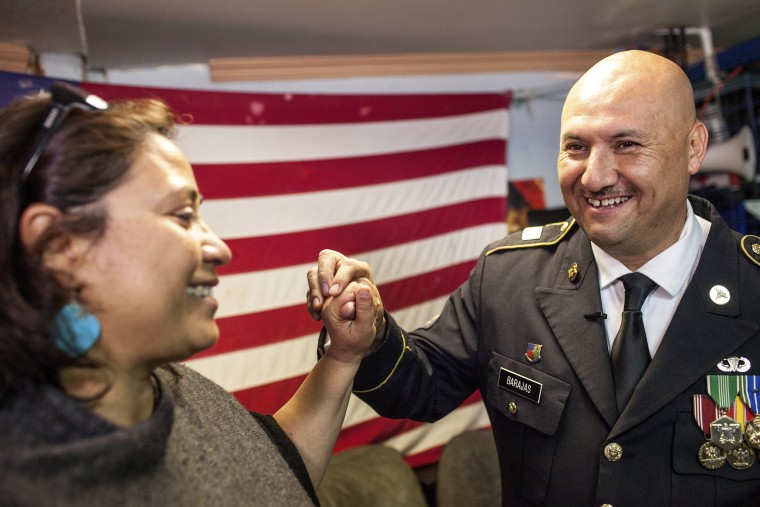All dressed up in his U.S. military uniform and accompanied by his supporters, Hector Barajas-Varela received a life-changing announcement: April 13th will mark his naturalization ceremony in San Diego.
The Mexico-born veteran waged a 10 year-long fight to return to the United States, where he lived since he was seven years old.
“This is great! I’m going home, Ma!” said Barajas-Varela according to attorneys from the American Civil Liberties Union (ACLU), who released the statement announcing the decision.

"Finally, after years of fighting for the rights of deported veterans to return to the U.S., Hector will be able to return home as an American citizen," said Jennie Pasquarella, director of immigrants' rights for the ACLU of California and one of Baraja-Varela’s attorneys.
According to the ACLU, Barajas-Varela is one of the more than 230 U.S. Armed Forces war veterans who have been deported. In 2016, there were more than 300,000 veterans living in the U.S. who were not born in the country, a third of whom had not processed their citizenship — one of the benefits they are promised when they enlist.
Barajas-Varela enlisted in the Army in 1995 and was honorably discharged in 2001 after receiving numerous accolades and awards, including the Army Commendation Medal and Humanitarian Service Medal.
Following his service in the army, Barajas-Varela said he had difficulty adjusting to civilian life. His struggles with substance abuse, plus a no-contest plea to shooting at an occupied vehicle, resulted in his deportation in 2002.
After being unable to adapt to life in Mexico, a country that he found unfamiliar, he made his way back into the U.S. before being deported again in 2010, Barajas-Varela said in an interview with the Associated Press.
Supporters of deported veterans’ rights say former soldiers who face difficulties adjusting to civilian life, including substance abuse or other mental health or physical issues, should receive treatment instead of deportation orders.
Earlier this week, federal authorities deported veteran Miguel Perez Jr. after facing drug crime convictions in 2010. Prior to his deportation, Perez Jr. served two tours in Afghanistan and had opened up about his traumatic brain injury and post-traumatic stress disorder diagnosis in previous interviews.
During his 10 years living in Mexico, Barajas-Varela founded, with the help of the U.S. Department of Veteran’s Affairs in San Diego, the Deported Veterans Support House, known as the “Bunker.” Last year a congressional delegation, including Rep. Joaquín Castro, (D-TX), visited the center and advocated for the deported veterans. "Many of us believe that they should be allowed to become citizens," said Rep. Castro.

Barajas-Varela received a full pardon from Gov. Jerry Brown last year.
In his statement, Gov. Brown said Barajas “has shown that since his release from custody, he has lived an honest and upright life, exhibited good moral character and conducted himself as a law-abiding citizen.”


